A recent Sunday walk hopes to usher a new initiative to build connections between literature and Mumbai neighbourhoods. We tag along on the walk to learn the stories
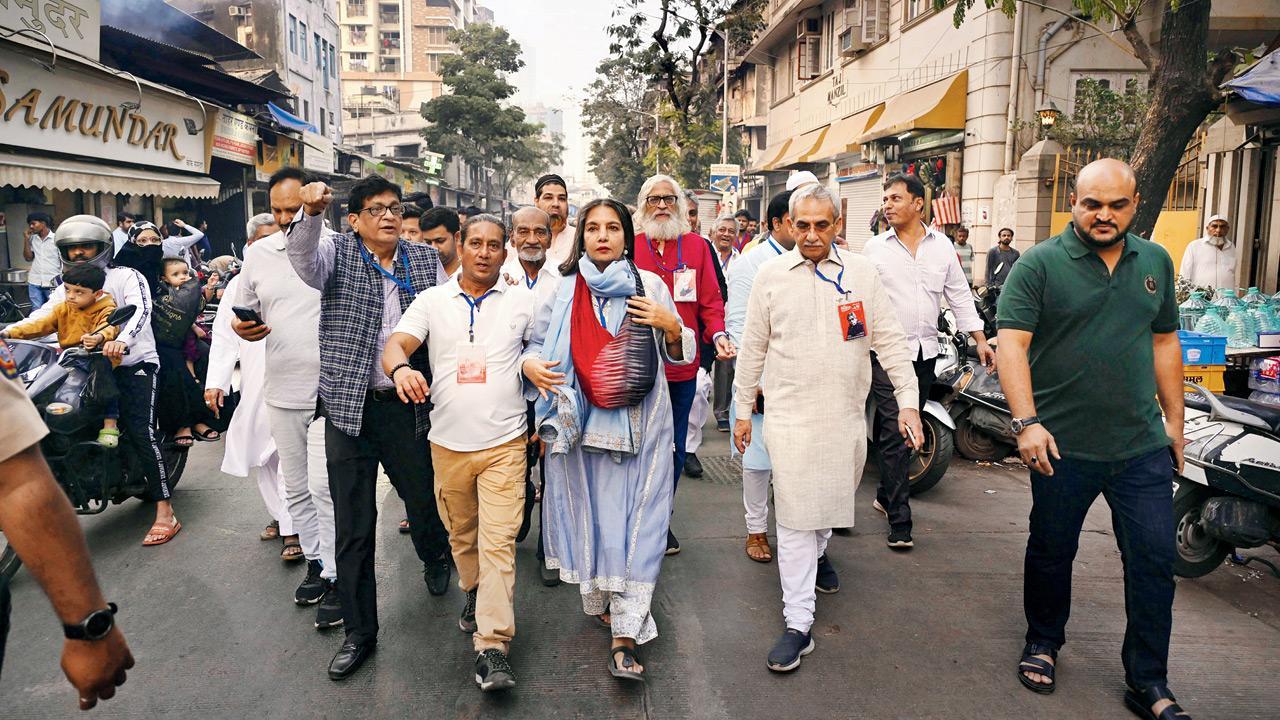
Zubair Azmi (in check-print jacket) leads Shabana Azmi (in blue) on the walk through Madanpura
Down Maulana Azad Road, a left turn veers into a cul-de-sac. Dwarfed by the rickety two-floor Lohe ki chawl on both sides, the lane was the starting point for the Kaifi Azmi walk organised by Urdu Markaz on January 14. The promise of Shabana Azmi joining the walk was a reason for our attendance. Urdu Markaz director Zubair Azmi explains, “With the rise of the Progressive Writers Movement and IPTA (Indian People’s Theatre Association), names from Kaifi Azmi, Majrooh Sultanpuri, Manto, Ismat Chughtai to Habib Tanvir, Balraj Sahni and actress Nadira would walk through these lanes.”
ADVERTISEMENT
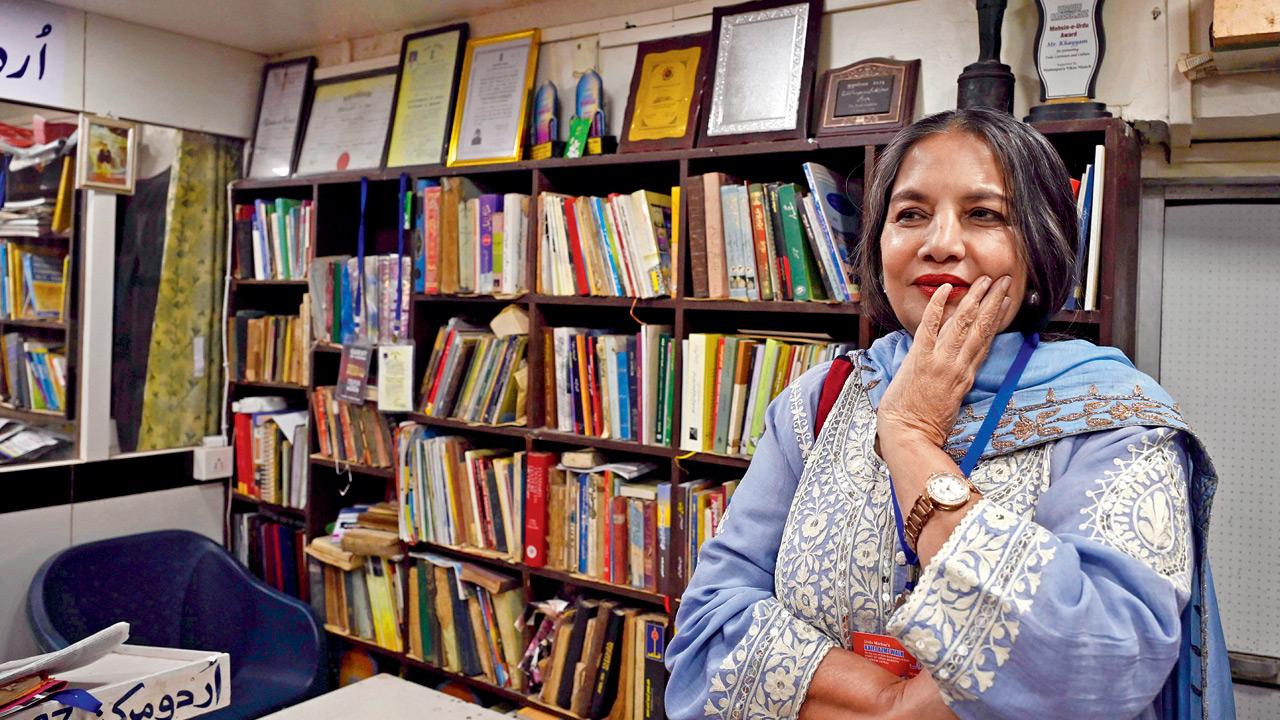
The actor observes archival books at the collective’s offices in Lohe ki chawl. Pics/Ashish Raje
From the carpenters next door to the office of the Urdu Markaz, to little tykes playing cricket in the adjacent lane crowd around to catch a glimpse of Shabana Azmi upon her arrival. As a child, the actress accompanied her father, Kaifi saab, a member of the Communist Party of India, while he helped the textile and mill workers in the city.
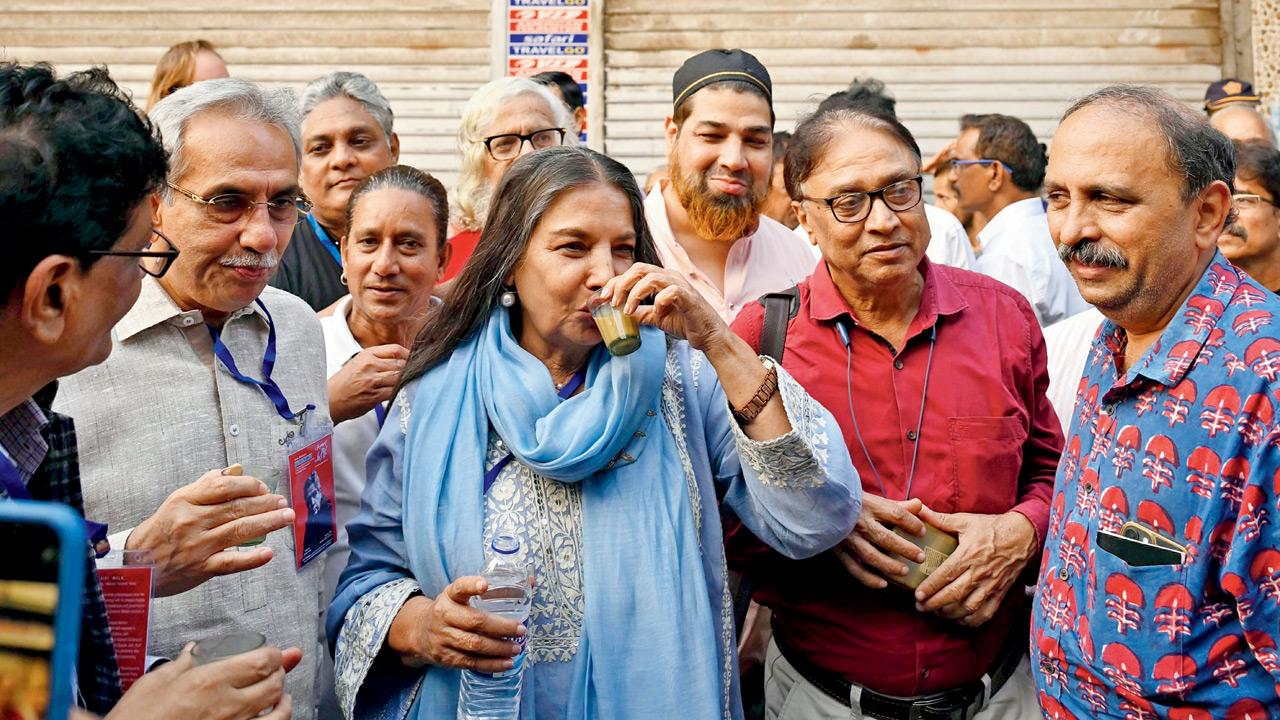
Azmi tries the tea near Madanpura
“There was not enough money, so amma (Shaukat Kaifi) would work with Prithvi Theatre. When she would tour, I would tag along with my father. Back then, it was a holiday for me since the workers would carry me around on their shoulders and buy me cakes,” she shares with this writer later. It was also here that Kaifi Azmi wrote his famous nazm, Makaan, Shabana reveals.
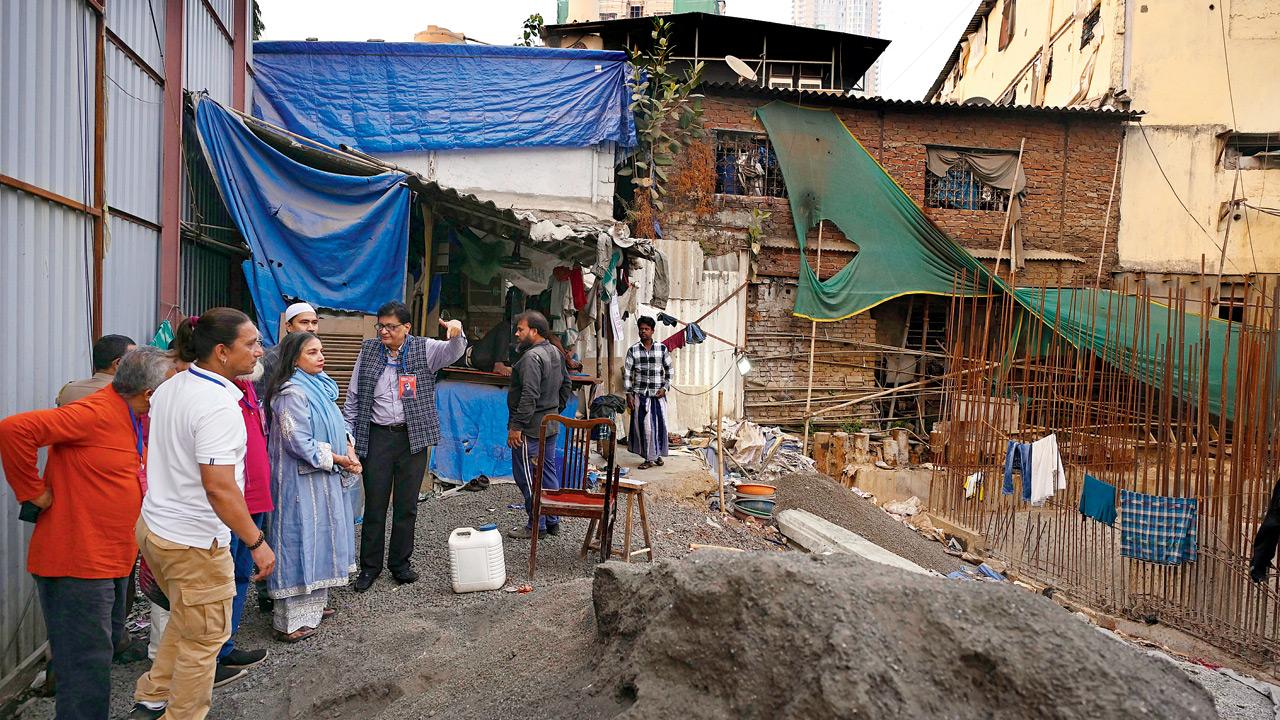
The under-construction space that once housed the Communist Party office
“He was seated on a charpoy, observing workers at an under construction building across the street. The irony of the same worker being barred from entering the building upon completion led him to write those lines. Art has to be a voice for the people, he would say,” she recalls before reciting a few lines.
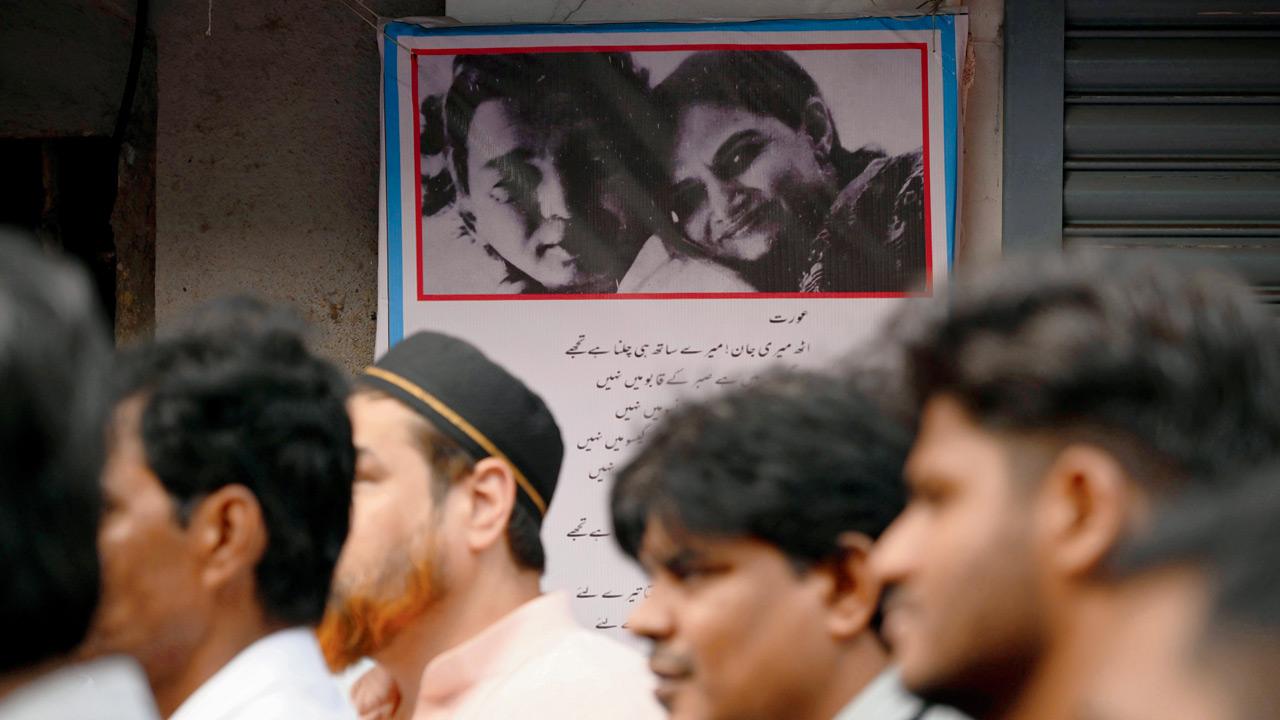
A poster of Kaifi Azmi with wife, Shaukat Kaifi, alongside the verses from his poem, Aurat
These experiences shaped the actor’s choices and activism as part of the Nivara Hakk Samiti in the 1980s. “I learned by osmosis from my parents,” she admits. This is self-evident when she stops impromptu to have a cup of tea from the roadside stall without the airs of a National Award-winner. A new generation of residents, though, barely recognises her. Amusingly, a young boy tells his friend it must be a political rally before walking away. It feels like one as we chase to stay in touching distance, and to hear the conversation above the din of the growing crowd as they walk past the market.
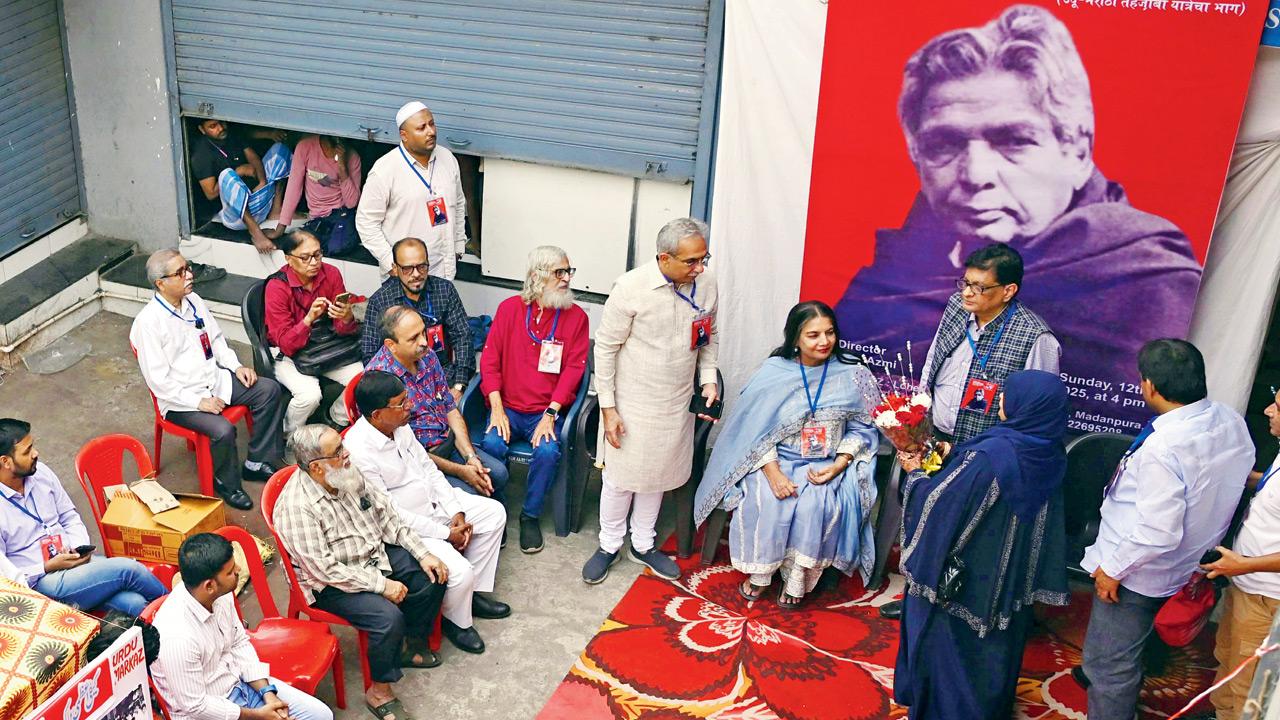
The actor is felicitated at the venue
The tour follows the Maulana Azad Road to an under-construction building site — once the offices of the Communist Party of India, stopping for moments at the old offices of Inquilab (mid-day’s sister Urdu-language publication), where Javed Akhtar worked as a translator during his first weeks in the city.
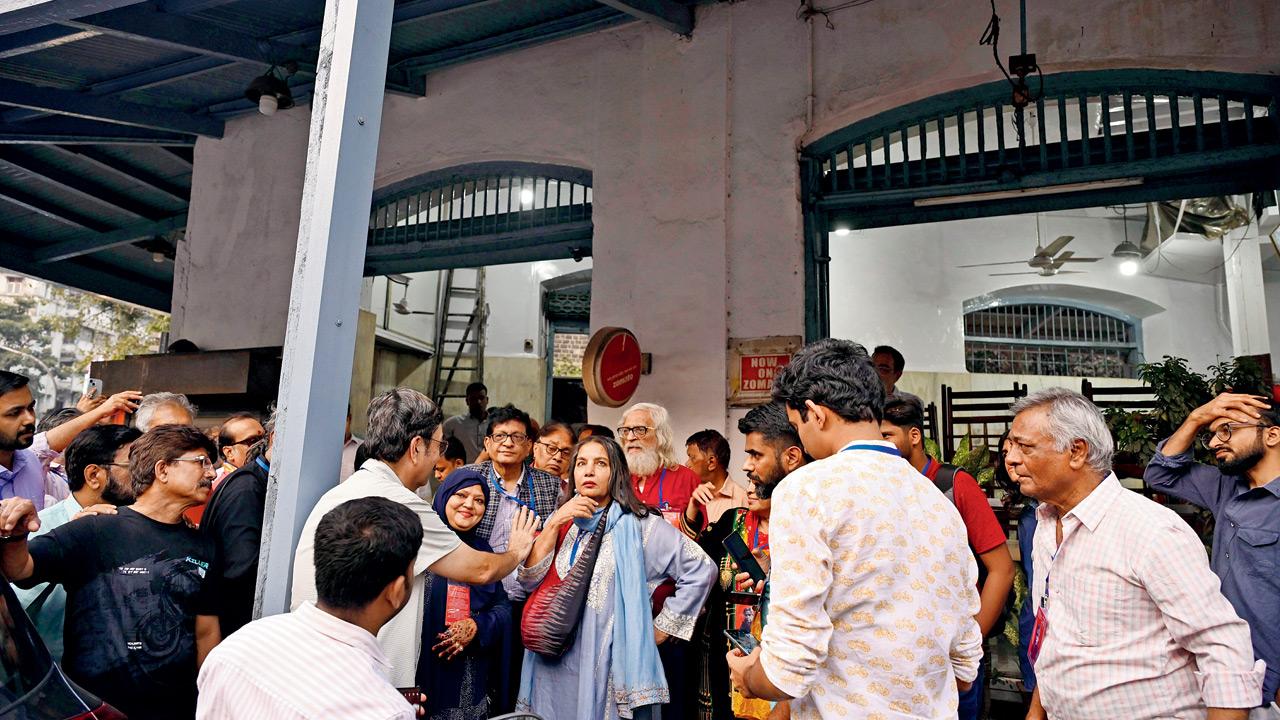
Azmi (centre) takes a breather at Sarvi Hotel near Nagpada junction
The penultimate stop is at Sarvi Hotel around Nagpada Junction. Once the Algonquin Table for writers like Ismat Chughtai, Saadat Hasan Manto, KA Abbas, and even stars like Ashok Kumar, Lata Mangeshkar and Raj Kapoor, it was closed for cleaning. Ironically, upon her arrival, Shabana told the organisers she’d be happy to turn up every month if they promised kebabs from Sarvi.
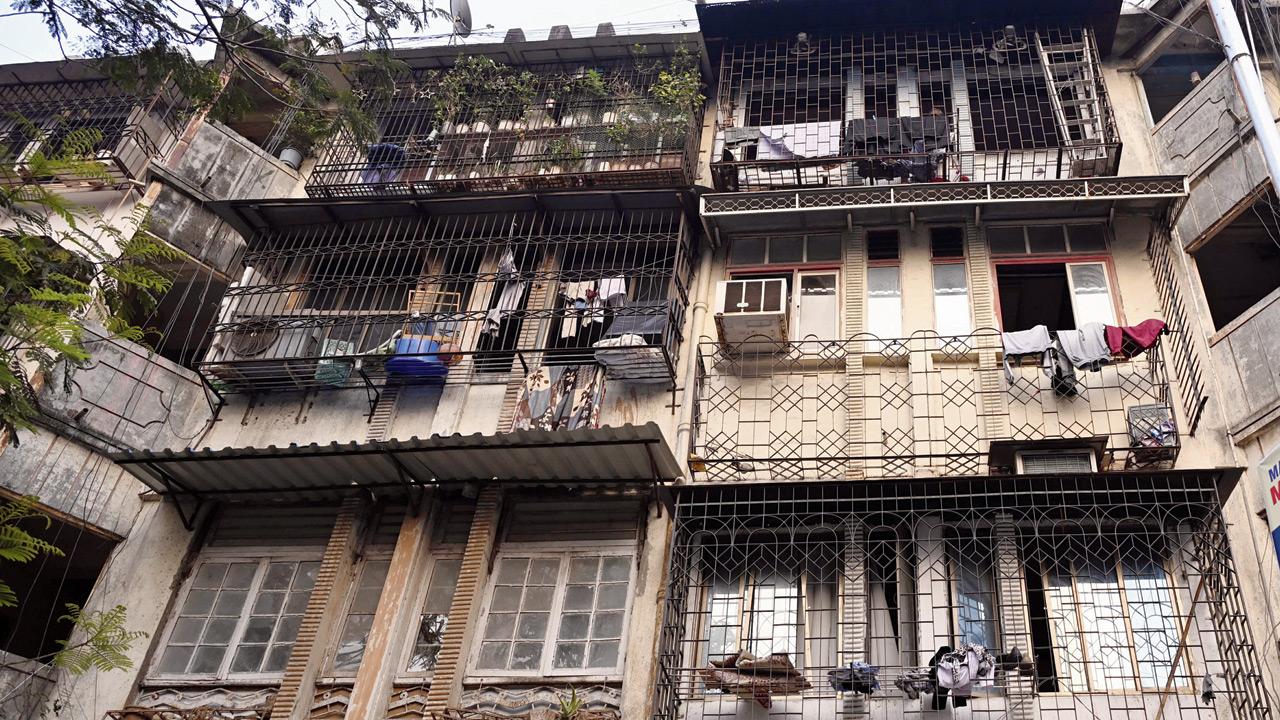
The Inquilab Manzil once housed mid-day’s sister concern, Inquilab Urdu newspaper, where a young Javed Akhtar worked
The walk is a part of Urdu Markaz growing Urdu-Marathi tehzeeb yatra, in addition to the upcoming Bhendi Bazaar festival. In addition to sourcing and building a collection of Urdu poetry and books from the Communist libraries, the organisation hopes to conduct these walks on a monthly basis.
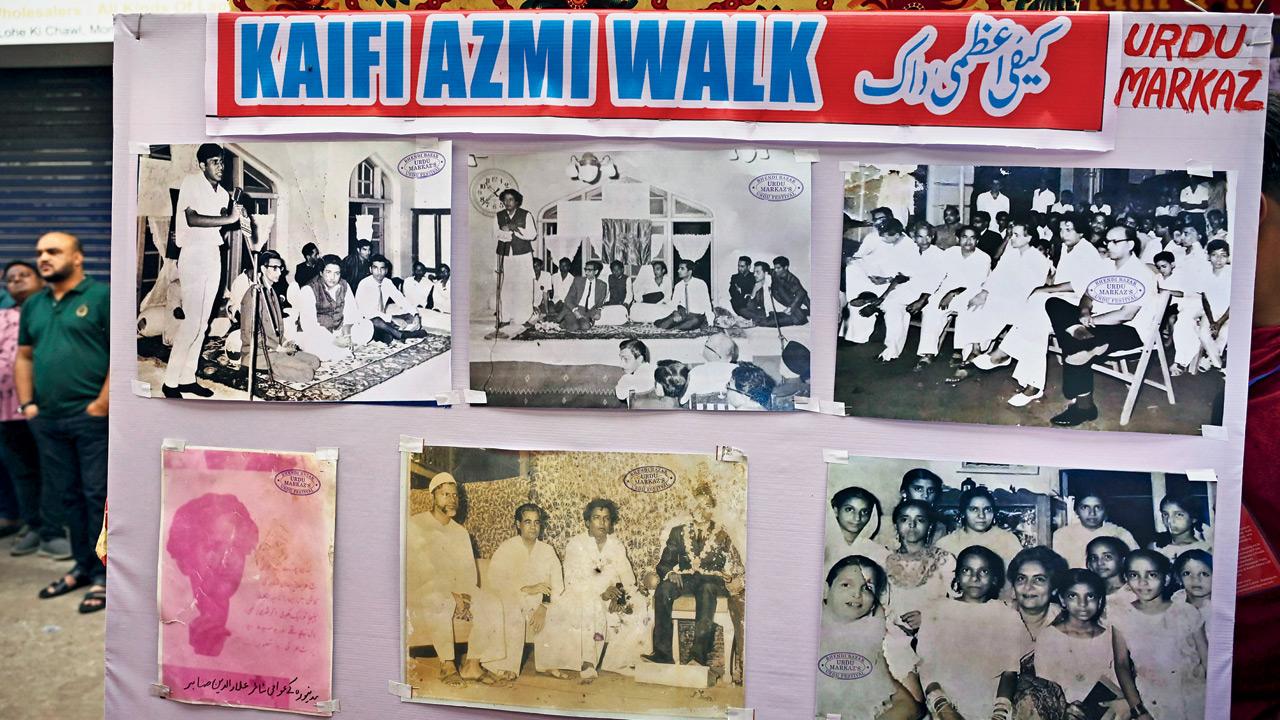
Photographs of Kaifi Azmi (standing, centre photo) from the collections of the Urdu Markaz archive
“The next one will be on poet and writer Namdeo Dhasal in Kamathipura, also an old haunt of Manto. We are trying to bring back literature to the streets of Mumbai,” shares Markaz director, Zubair Azmi.
AT Urdu Markaz, 216, Lohe Ki Chawl, Madanpura.
CALL 9322695208 (Zubair Azmi)
 Subscribe today by clicking the link and stay updated with the latest news!" Click here!
Subscribe today by clicking the link and stay updated with the latest news!" Click here!







